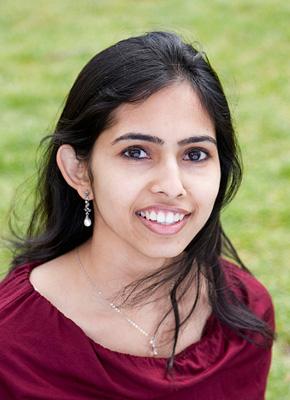 They have the parchments and the canes, and they are now officially alumni—but these Amherst graduates just will not leave. It’s for a good reason: A select few among the Class of 2012 are staying on campus for Post-Baccalaureate Summer Research Fellowships. The fellowship program started out in 2010 as the Mellon Senior Thesis Prize, geared toward supporting a senior thesis writer whose work showed potential for publication. After the one-year Mellon grant was spent, the program was deemed just too good to drop.
They have the parchments and the canes, and they are now officially alumni—but these Amherst graduates just will not leave. It’s for a good reason: A select few among the Class of 2012 are staying on campus for Post-Baccalaureate Summer Research Fellowships. The fellowship program started out in 2010 as the Mellon Senior Thesis Prize, geared toward supporting a senior thesis writer whose work showed potential for publication. After the one-year Mellon grant was spent, the program was deemed just too good to drop.
Part of the credit goes to the Mellon prizewinner, Gina Rodriguez ’10, who was able to use the summer after graduation to polish her thesis project, Tuesday Today, Tuesday Tomorrow. The novel tells the story of a Chilean family living in America, with a father forced to consider his own history as a soldier in the Pinochet regime when his son enlists in the U.S. Army and is deployed to Iraq. “I thought I was done with it,” Rodriguez said of the novel, but the summer program allowed her to return to it, filling some plot holes and changing other imperfections that had remained because of the need to complete the project in time to graduate.
“I was blown away [by the fellowship opportunity]. It was a nice reminder that this college believes in me,” she said. “It’s such a vote of confidence.” She recently completed her first year at New York University, where her revised manuscript got her into the masters of fine arts program for creative writing.
Last year, the Amherst faculty’s Committee of Six —in part because of the endorsements of Rodriguez and her advisor, Professor of English Judith Frank—agreed to allocate college funds to keep this award going. The committee tweaked the award to allow for a variety of academic disciplines and publication formats. The Amherst Post-Baccalaureate Summer Research Fellowship, as it is now called, is awarded to encourage each senior “working with a faculty advisor, to revise an outstanding piece of academic work over the summer after they graduate, with the goal of publishing it, or co-publishing it with the faculty member.” Each winner receives dorm housing, a $2,000 stipend and $1,500 toward living expenses; each faculty advisor receives a $500 award as well.
Rodriguez said this fellowship is a valuable opportunity for the recent graduates: “It's a great way to bridge what you did at Amherst with what you want to do with your life.”
Meet this summer’s post-baccalaureate fellows:
Nate Belkin (Biology) will spend the summer expanding on his research on the protein TMEM16F and the role it plays in Scott syndrome, a rare congenital bleeding disorder resulting from a defect in the mechanism required for blood coagulation.The “scrambling” of cell components that normally occurs following injury does not occur in people with Scott syndrome. Belkin was able to tentatively determine that TMEM16F is not the actual protein involved in the scrambling process. He will use his post-baccalaureate time to verify that conclusion and elaborate on it. “My assay was only partially developed in my final thesis final project,” he wrote. “My summer research will verify, extend, and in general tidy up my thesis results…The end result is to get a clean and polished product and series of experiments that I can publish…These results might shed some interesting light upon the currently unknown role of TMEM16F in regulating the scrambling activity that is missing in Scott syndrome patients.”
 Kuhuk Bhushan (Economics) will be revising her thesis project, “The Impact of Media on Attitudes Toward Domestic Violence in India,” a study of how women in India with access to television and radio eventually become less likely to think domestic violence is acceptable. “The main revisions I am making are based on the comments I received from my thesis readers [and] involve running some additional statistical tests to get more out of my data and back up my initial findings,” she said. “This fellowship will prepare me for doing further research in development economics, and the publication will also help significantly when I apply to doctoral programs for economics or public policy in the future.”
Kuhuk Bhushan (Economics) will be revising her thesis project, “The Impact of Media on Attitudes Toward Domestic Violence in India,” a study of how women in India with access to television and radio eventually become less likely to think domestic violence is acceptable. “The main revisions I am making are based on the comments I received from my thesis readers [and] involve running some additional statistical tests to get more out of my data and back up my initial findings,” she said. “This fellowship will prepare me for doing further research in development economics, and the publication will also help significantly when I apply to doctoral programs for economics or public policy in the future.”
Afua Nti (Chemistry) is conducting complementary experiments while putting together figures from her thesis, “Unraveling the Mechanistic Details of Proton-Coupled Electron Transfer (PCET) Using Model Systems—A New Model.” In the last decade, scientists have become increasingly interested in understanding PCET, as “it holds potential for revolutionizing the renewable energy sector as we currently know it,” she said. After conducting experiments to complete data that was only partially done, she will distill all the information down into a more streamlined version for publication.
Trevor Hyde (Mathematics) will work on extending the results of his thesis, “Dividing the Lemniscate: An Interplay of Elliptic Functions, Class Field Theory, and Complex Multiplication.” His goal is to publish a paper with his advisor, David Cox, the William J. Walker Professor of Mathematics.
Annemarie Iker (European Studies) will be taking a closer look at the Valle de los Caidos (Valley of the Fallen), a basilica and monument built by the Spanish dictator Francisco Franco after the Spanish Civil War. “Like many thesis writers, I started the process thinking I'd never be able to stretch my topic out for 20 pages—and ended up wishing I could say even more than I had,” she said. “This summer is my opportunity to do so, and prepare myself for my next academic steps.” She said she would likely concentrate on details of the monument’s design and construction.
Brian Kim (Mathematics) will continue work on his project “Perfect Pitch: An Analysis of Pitchers Using Pitch F/X Data,” in which he uses baseball statistics to pinpoint, among other things, where exactly a pitcher should throw the ball. Looking at what only the pitcher controls, he analyzed data on pitch speeds and locations, coming up with the best options for types of pitches to use in various circumstances.
Ariah Klages-Mundt (Mathematics) will be expanding a table of elliptic curves with more recent data on automorphic forms as he adapts his thesis “Computing Elliptic Curves over Complex Cubic Fields” for journal publication. His work, he said, proves “some interesting propositions about the possible torsion structures of elliptic curves over certain cubic number fields.” A torsion element is an element that, when added to itself a certain number of times, ends up equaling zero.
Jareb Gleckel (Psychology) is working with Professor of Psychology Amy Demorest to condense and format his thesis, “Examining Primacy as an Identifier of Salience,” for journal publication. His study provides evidence that when people describe their experiences (for example, in therapy or in autobiography), the first stories they present reveal important themes that show how they view the world.